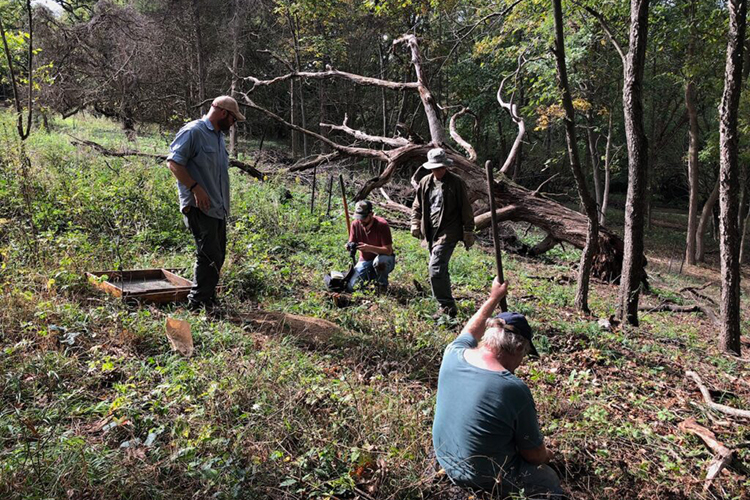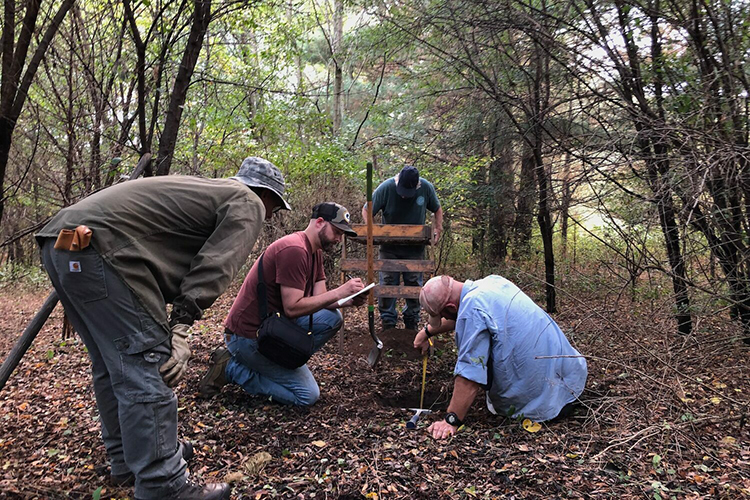College of General Studies student and Veteran, David Shaw, feels like he’ll be a step ahead of other archaeology colleagues thanks to his hands-on experience with an archaeological survey at the UWM at Waukesha Field Station.
The college’s Honors program offers the opportunity for students to enrich their college experience through research and more while also providing a closer association with professors and other honor students. David was able to join professors from several different departments, including Chris Hays, Bill Schneider, Joe Quick, and Gregg Jamison for the archaeological survey at the 98-acre Field Station in October 2021. He has taken multiple anthropology classes through the College of General Studies and plans to major in anthropology and complete his coursework at UWM, then pursue a career in the field. The survey and subsequent laboratory analysis that he conducted with Professor Jamison were his first hands-on experiences with archaeology.
“The experience was awesome. It was basically trying to solve a mystery. We knew previous artifacts had been found in the area, but we had to try and figure out the best place to search. I think I have a good understanding of a beginning archaeological survey. Our pedestrian survey, shovel test pits, and then brackets off the shovel test pits were to narrow the site down to a specific area. When I take an archaeological field school course, I will already have experience which will greatly set me apart from other colleagues also taking the course.”

The investigations they did resulted in the discovery of at least two distinct archaeological sites. One of the sites contained a spearpoint that dates to the end of the ice age in Wisconsin, which archaeologists refer to as the late Paleo Indian period. At the other site they recovered artifacts from stone tool manufacture and at least two tools, including a probable broken spearpoint. The previous owners of part of the property also provided two additional spearpoints for analysis, one of which is likely associated with the Early Woodland Period around 2500 years ago. Pottery, glass, and nails associated with the late 19th/early 20th century farmstead at the Field Station were also recovered at one of the sites.
“Every time someone said ‘got something’ everyone would stop and look up. It was very exciting,” said Shaw.
David Shaw’s experience is just one of many fascinating projects students in the College of General Studies have an opportunity to be a part of. Read more about the Honors program. And stay tuned for more plans for the Field Station sites this spring!
